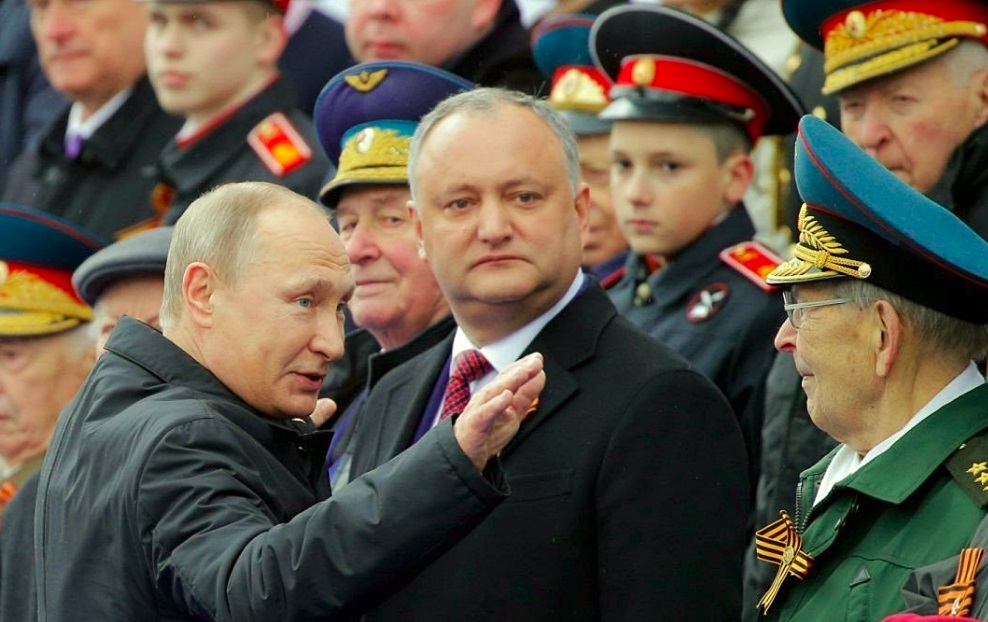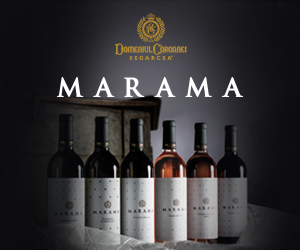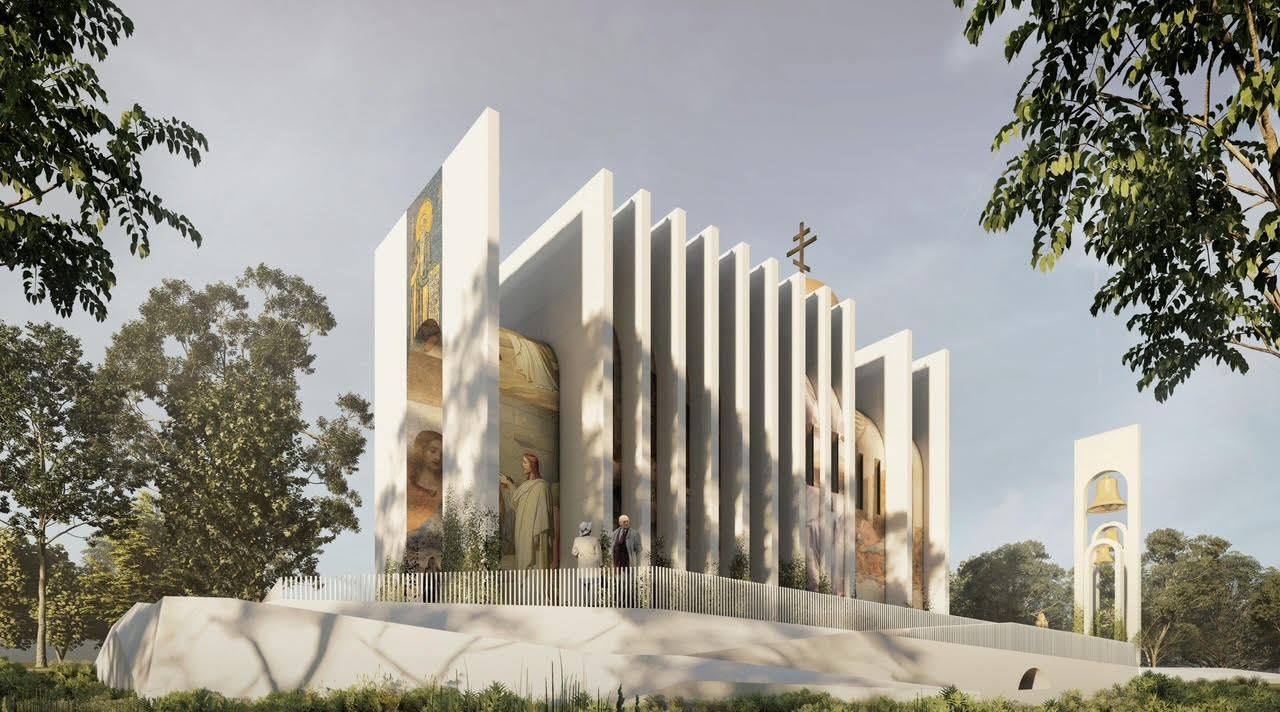About the toxicity of the idea of uniting Romania with the Republic of Moldova
Few people know that until 1981, a Youth Athenaeum operated in Bucharest. Even fewer people know that although this Athenaeum functioned as a house of protocol culture of the UTC CC, there was very little in common with artistic activity with communist propaganda.
Suffice it to say that rock bands such as I, Roșu şi Negru, Progresiv TM, my avant-garde music band ABC, had their “headquarters” there, Doru Stănculescu, Gigi Gheorghiu, Constantin sang there when they were not on tour with the Flacăra circle. Moțet (before fleeing to America), Zoia Alecu, etc., young actors such as Marina Procopie, Carmen Enea, Carmen Trocan, Marian Ciripan, Cristi Rotaru, Florentin Dușe or Nae Caranfil, who would become a director, took part in shows there.
Access to the weekly shows was free. Anyone could attend by paying the entrance fee; you did not need any UTC credentials or any special access permissions. It’s just that, from the point of view of the media, there is a certain discretion, precisely because, I repeat, what was happening on stage was far, far away from communist propaganda, no matter how much place of UTC protocol it was!
Proof of this is the fact that, at the end of the 70’s, at the mini-Athenaeum that was located in Malaxa’s former house, on Aleea Alexandru, where the cultural collapse called the Romanian Cultural Institute is currently operating, at the beginning. to arrive foreign cultural delegations, we, who had rehearsal rooms there, holding joint performances with artists from those countries. I caught four delegations: one from the United States and one from the UK in 1977, one from the former GDR in 1978 and one from the Soviet Socialist Republic of Moldova in 1979.
After the performances that took place in the great hall of the Athenaeum, they stay in the bar to the right of the hall for a “cultural dialogue” with the guests. We talked about music with people from the United States, being very curious to find out what it’s really like there. The same with the UK. I personally discussed with the German Democratic Republic the possibility of reunifying Germany, this re-purchase, in 1978!
Discussions with artists from abroad flowed freely, despite the Security officers who were next to us or, as happened with the GDR members, those from STASI, who were in their delegation.
Tanti Ida took care of the atmosphere and, of course, the dialogue, managed the bar that supplied us for a fee with Radeberger beer, Stolichnaya or Krepkaya vodka, Cuba Libre rum, Albanian Skanderbeu brandy, Pepsi, Polish apple juice and cigarettes. German HB or Chinese, Double Horses.
Well, in 1979 a Moldovan cultural delegation arrived at the Athenaeum. They were just poets whose, unfortunately, I forgot their names. Along with them were several KGB officers and several Securitate officers. After the show, we followed the “custom of the place” and went to the bar. This time, the dialogue was not at all cheerful, but very deep, carried on in a very serious tone. There was no room for smiles. Until the morning, we had the opportunity to find out some of the horrible things that happened across the Prut, after the surrender of Bessarabia.
For me, who was just a teenager, it was the first more serious contact with the history of that place, with the history of my country, because in school, I had never learned what I had heard that night.
As unreal as it may seem to you, that’s what happened. And in the morning, because we stayed until the next day, after we drove the Bessarabian poets to the bus parked in front of the Athenaeum, one of the intelligence officers told us that that night he learned as much true history as he could. . no security school could have taught him. Since then, I have become a staunch supporter of reunification ideas.
This kept me going until 1995, when, benefiting from an OSCE accreditation, as a journalist of the former weekly Tinerama, of Max Bănuș, I was an observer at the local elections in the Republic of Moldova.
I left for Chisinau enthusiastically, full of affectionate thoughts for, I thought, the brotherly people, but also with immense curiosity. I couldn’t wait to talk to the Romanians there. The first dialogue I had with a Romanian from Chisinau reassured me definitively about brotherhood, affection or, worse, union. And this dialogue was right on the street.
Near the center, in broad daylight, was a real flea market. On some newspapers sitting on the sidewalk, a man about 60-70 years old had put some Romanian books on sale. I knew that Romania had just sent some trucks with books, being donated to the libraries there, so I asked him where he got them and why he was selling them?
He told me that he was a librarian, that he had taken them from the library where he works and that he was selling them to make money. In other words, he had stolen them, and now he was selling them. I say: “How so !? Don’t you think that these were sent so that you may not get to know us on the left bank of the Prut better? ” And he cut it short for me: “Leave me alone, sir, I don’t need any Romanian, we don’t need you. I want it to be the way it was in the Soviet Union, because I was living well then, not like now. ”
I say, already annoyed: “Well, then you live well because you steal from us, from the Czechs, from the Poles, from the Russian-occupied countries.” “Well, yes, that’s what I want, let’s take it from you, so we can live well”! From that moment on, in what I found out, the ideal of union with Bessarabia was written to me, to look for other truths, apart from what those poets had told me in 79. And, wow, I found out!
I found out that, as it was, after the fall of Bessarabia, the Romanians there lived tragedies that can hardly be described or understood. I learned that through his treacherous policy, Stalin massively changed the demographic structure, as he had done in many places.
Years in a row, I found out that, in fact, there are fewer and fewer Romanians who “feel Romanian” and that, in fact, most of them would agree with the librarian I told you about, that it was better with The USSR, than now, and that’s why they can’t take Romania anymore.
For some time now, it has been confirmed to me that very few of the Romanian natives in the Republic of Moldova want to unite with Romania. Worse, according to an INSCOP-Moldova poll of about two weeks ago, 43% of the country’s population support Russia’s war against Ukraine. And I also found many and small, but none that would make me believe or want any more union with that territory.
Moreover, for years I believe that any positive communication of the idea of reunification and against the national interest of Romania and any action in this regard undermines the security of our countries.
But, personally, I consider that Romania has the obligation to provide all the support of care in the state of these countries, but within the limits of its status as an EU and NATO member country. Otherwise, any idea of reunification is toxic, and here’s why I think so:
-As can be seen now, any statement in the sense of reunification and an additional reason for Russian propaganda to attack Romania and Romanians.
– From an economic point of view, Romania could not support a possible Bessarabian territory returned to its former borders. Not even Germany has been able to bring the former GDR to the level of the western part, despite the huge allocation of huge sums in this regard year after year.
-From a political and social point of view, through a possible union, Romania would create huge problems, due to the existence of a violent, anti-Romanian, anti-European and anti-American Russophile population.
-To them are added other minorities who, due to a similar attitude, would amplify problems. From a multicultural point of view, it would be of no benefit, but only a social and even cultural disaster. Try to organize a Romanian show in Comrat and you will understand better.
-An argument against the distance of the Republic of Moldova from Romania, in terms of population, is the result of the same poll which reveals that, if presidential and parliamentary elections were held now, the people across the Prut would vote en masse with Igor Dodon and his, Dodon . still proving to be a devoted servant of Russia.
-A possible union with Bessarabia would be a political and social aberration, since the Republic of Moldova has on its territory parts of the army of another country, Russia, which is not only against NATO and the EU, in fact, as it claims in these . days, against everything that is civilized and human, but is also explicitly nominated in the military doctrine of Romania as the main enemy, as it was, in fact, always. In addition, the existence of Gagauzia in the south of the Republic of Moldova would bring other huge problems to our countries.
-From the above reasons, even the accession of the Republic of Moldova to the European Union is, at least for years, impossible.
Whoever supports the idea of reunifying Romania with Bessarabia is taking an anti-national action, playing the game of Russia and, directly, of the criminal Putin. And if he is a Romanian citizen, he is even more guilty!





